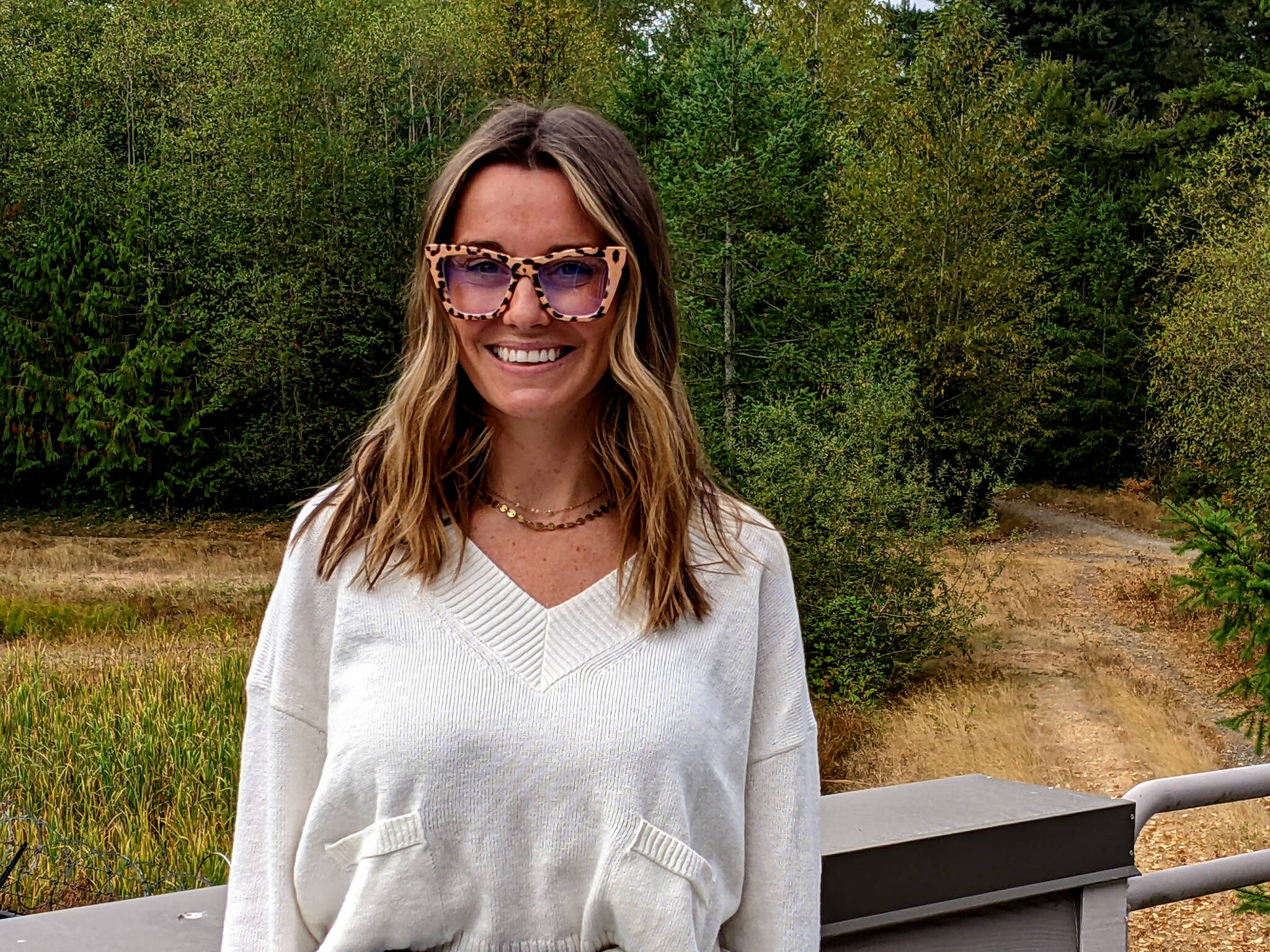One of the Snoqualmie Police Department’s newest hires isn’t like her colleagues. In fact, prior to being hired, she had never worked inside a police station.
Stephanie Butler, a licensed social worker and mental health counselor, joined the Snoqualmie Police Department in September as its new mental health professional and community responder.
In her role, she will work directly alongside police, fire and other first responders in responding to calls that involve mental health crises. She will also link residents to community resources.
While Butler has not worked in a police department, she has spent nearly a decade working in social services positions, including time as a correctional facility counselor. She has served in both inpatient and outpatient roles, treating a variety of populations including homeless adults and children as young as age 5.
Originally from Wisconsin, Butler and her husband moved to Washington during the pandemic and relocated to the Valley in the spring of 2021.
When the position opened up at the police department, she jumped at the chance to serve as the department’s first mental health professional, noting it is the first time in her career that she has lived and worked in the same community.
“When people are calling 911, it could be one of the worst days of their lives, and anything to support them and support the officers is super exciting to me and super beneficial to the community,” she said. “I know we’re a small community here, but I don’t doubt that we can have as big an impact as other mental health professionals responding in other communities.”
Butler’s position is part of a pilot-program that, if successful, could be expanded to other cities.
Her work was funded during last year’s state legislative session, when state Rep. Lisa Callan (D-Issaquah) requested $150,000 from the state budget on behalf of Snoqualmie and North Bend to fund the position for a single year.
After that year is up, Snoqualmie and North Bend would have to fund the role using city revenues.
The exact role Butler will play in the community is still being worked out. But for now, her work involves responding alongside police to mental health-related calls and performing followups to connect residents to available resources.
Butler said she wants to use her position to bridge the gap between services and the people that need them. With both Snoqualmie and North Bend lacking human service departments, Butler’s work could play a pivotal role in establishing that connection.
The goal, she said, is meeting people face-to-face, treating them at home and avoiding unnecessary trips to the hospital.
“Instead of sending people to the hospital, we’re serving them in their least restrictive environment,” she said. “We’re avoiding people always going to the emergency room and being turned around and discharged and ending up back in the community in the same spot they were in.”
Sherry Jennings, a spokesperson for Snoqualmie Valley Hospital, said Butler will make a great addition to the Valley and is another step toward shoring up resources and providing better care. The hospital has four behavioral health providers, including two they hired in September amid a growing need for behavioral health services among adults and youth.
“Snoqualmie Valley is no different than other communities, in that there is an increased need for behavioral health resources,” Jennings wrote in an email. “What is different than most communities is that when we care for our patients, many times they are our neighbors. When our ‘Valley family’ is in crisis, we are all impacted.”
Butler’s position follows a national shift in re-imagining policing and recognizing the shortcomings of law enforcement officers when handling mental health crises. While Snoqualmie Police officers complete a 40-hour crisis intervention training course, they lack the training of a mental health professional.
“We aren’t experts in that area and it will be nice to have someone who’s better trained and can find a longer-term solution,” Police Chief Perry Phipps told the Valley Record in February. “The [state] police reform last year was pretty clear on, and we agree, that police aren’t always the best people to find a solution to these types of crises.”
Phipps said the department receives daily calls involving mental health crises. On a national level, it’s estimated that at least 20% of calls to police involve a mental health or substance abuse crisis, according to reporting by NPR.
Butler’s hire follows similar moves in other King County cities. Issaquah hired a behavioral health coordinator in 2021 and a handful of North King County cities have created a shared joint-navigator program.


